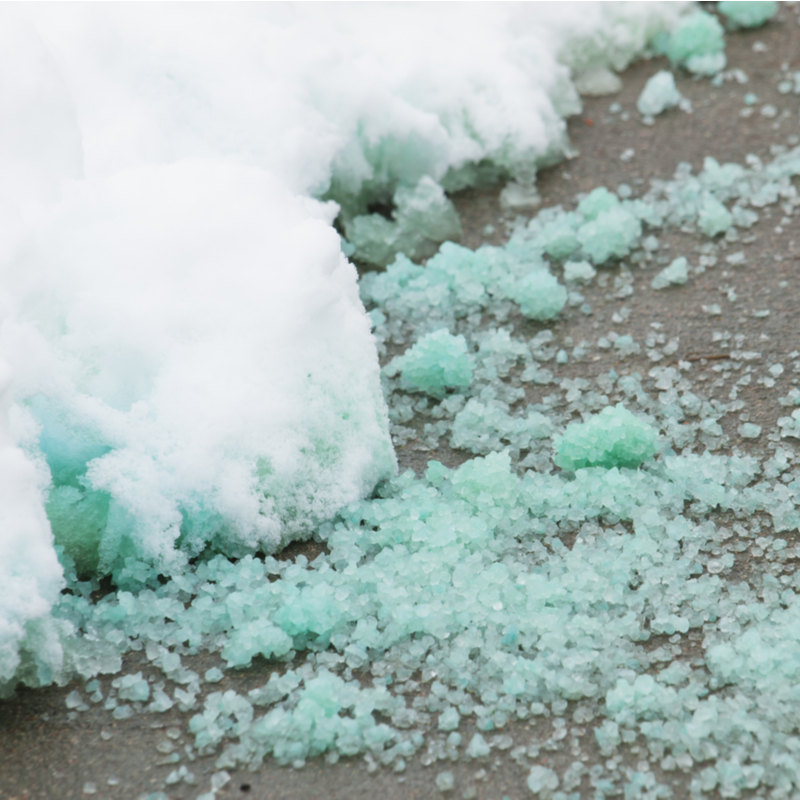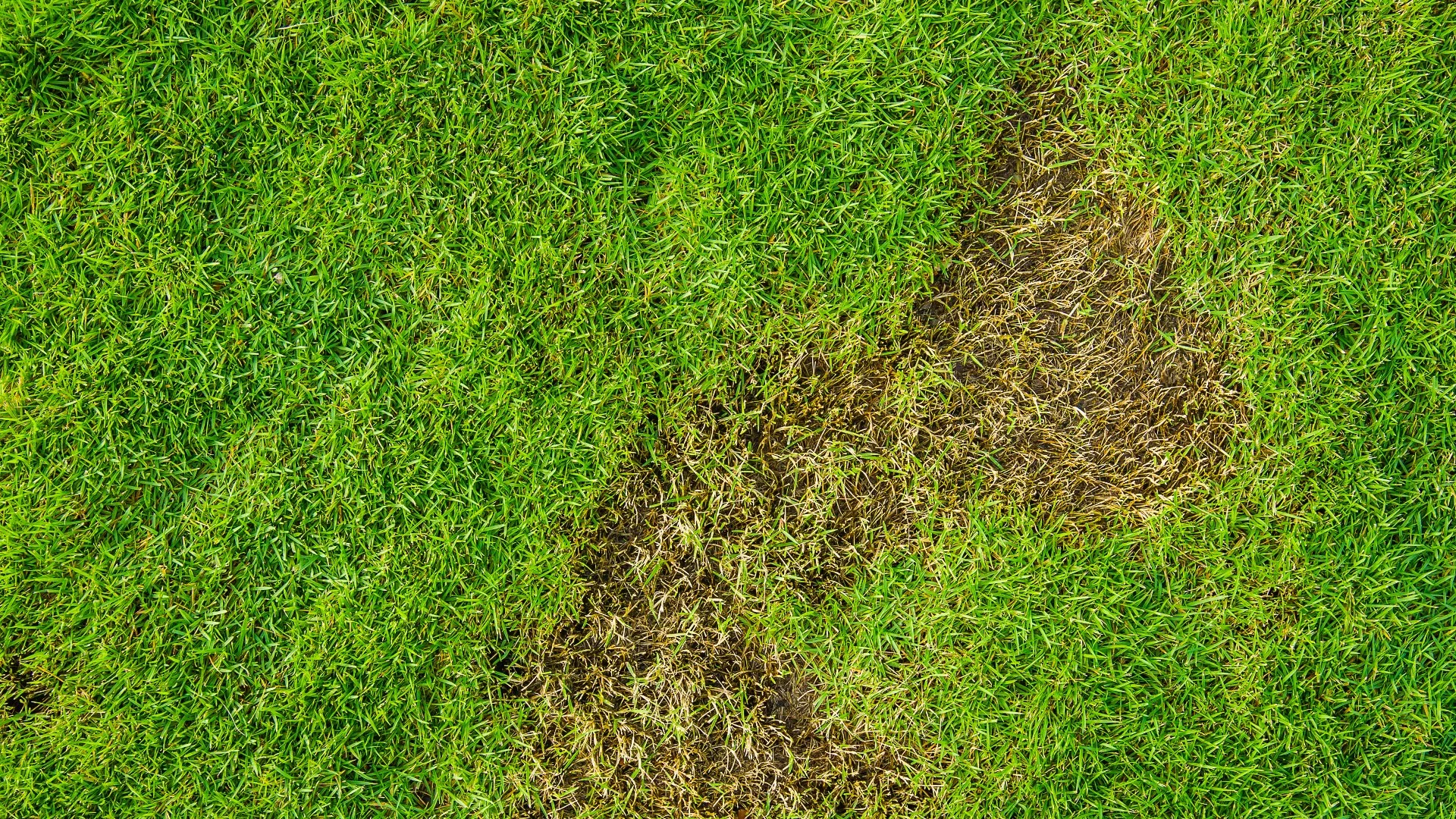It’s official: winter is here. And that means it’s time to stock up on ice melters, so you, your family, and your holiday guests are safe. While all road salt might look the same, they aren’t created equally. You’re probably most familiar with sodium chloride, but other compounds can be used to keep ice away. Discover the differences between de-icers and how to choose the best one for your family.
Choosing An Ice Melt For Your Home
Choose The Form
If you didn’t know, rock salt for your outdoor space comes in more than just the larger crystals you’re probably used to seeing. You can also purchase de-icers in pellets and liquid.
Pellets
Roughly the same size as frozen peas, a pellet de-icer is ideal for when you need to penetrate a deep layer of ice build-up. Pellets will create a brine, which reduces any new accumulation of ice down the road as more snow falls. Because ice never has a chance to reform after melting, it makes shoveling your concrete surfaces far easier. Unfortunately, there is a downside to this type of de-icer. Due to their spherical shape, they will roll if the driveway or other surface has an incline. If your driveway has an exceptionally steep slope, the product can puddle at the bottom.
Granules
This is the type of salt you’ve probably seen used most often. Because the granules are irregularly shaped, they won’t fall victim to gravity quite as quickly and roll down inclines. They also are suitable for providing some traction to driveways. So if there’s a particular area of your property that sees a lot of foot traffic, granular road salt might be the best way to go.
Liquid
If you have newer concrete and/or pets, liquid options are the way to go. This type of formula is gentler than solid de-icers, and they are more pet-friendly than other options.
Choose The Formula
There are several common salt compounds that you can use to clear your outdoor space from dangerous ice. Often, these compounds are sold as a blend of these four different salts. While all will do the job of melting ice, they each have their pros and cons – things to consider when making your decision.
Sodium Chloride (NaCl)
For the average Pennsylvanian winter, sodium chloride will do just fine when temperatures are 15 degrees Fahrenheit or higher. If you’re looking for traditional “rock salt,” this is the formula you’ll ask for at the store. The reason it’s so popular is that it lowers the water’s freezing temperature point. While this sounds like science fiction, it’s true! Because water will no longer stay frozen at 32 degrees, you won’t have to worry about ice unless the temperature dips into the single digits. Sodium chloride is excellent at keeping pavement drive. If you notice your neighbor’s property seems to be bone dry after shoveling and de-icing, it’s most likely because they applied sodium chloride. Unfortunately, all that ice-melting power comes with a drawback. Sodium chloride is corrosive and can potentially cause damage to concrete, wood, or the lawn. If you’ve got a newer driveway, you might want to consider a different option.
Calcium Magnesium Acetate (CMA)
Far less corrosive than sodium chloride, CMA is typically sold in liquid form and is biodegradable. In fact, it’s one of the best concrete-safe ice melters because it doesn’t have any salt in it.
Calcium Chloride (CaCl2)
If you need to de-ice things quickly, or if the temperature goes below zero, turn to calcium chloride. It absorbs moisture from its surroundings as it melts, which causes the chemical to heat up as it turns to liquid, allowing the ice to melt faster than other chemical compounds. It won’t corrode concrete surfaces like CMA, and it is more effective when temperatures reach their coldest. The one drawback is that it can burn your skin if you touch it – thanks to that heat reaction. So if you have children or pets, be mindful of this. Dogs especially, since they might inadvertently step on these de-icing crystals.
Magnesium Chloride (MgCl2)
Considered one of the most pet-safe options, this type of de-icer is less damaging than other salts. However, because it isn’t as corrosive, it doesn’t melt the ice quite as well as calcium chloride or sodium chloride. Therefore, you will most likely have to apply more of this product. But if you have pets, it’s certainly worth it to keep them safe.
Find The Best Lawn Care Products At Delaware Valley Turf
In addition to providing top-notch lawn care services, Delaware Valley Turf is pleased to offer a selection of high-quality products like fertilizer, de-icer, herbicides, and more through our store. Our staff is happy to help you choose the best product for your home, so your driveway, sidewalks, porch, and pathways stay free of ice this winter. To learn more about our product offerings, or to make an appointment, give us a call at (610) 328-4170, or you can inquire through our online form here.
Check out more blogs on our blog page here
Like us on Facebook.
Follow us on Instagram.






Comments (0)
Thanks for your comment!
Thanks for your feedback! Your comments have been successfully submitted! Please note, all comments require admin approval prior to display.
Error submitting comment!
There is a problem with your comment, please see below and try again.